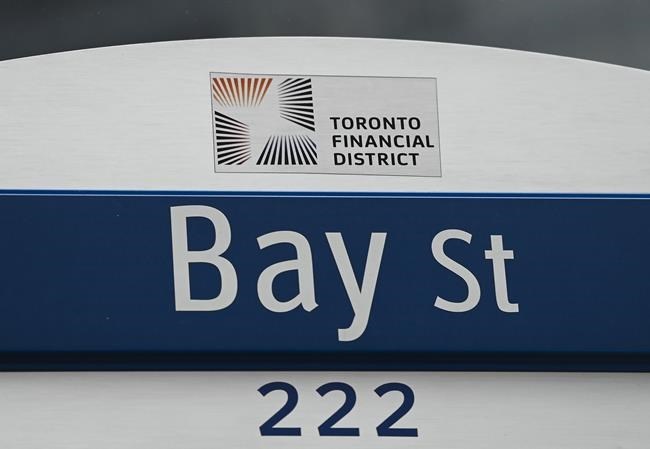TORONTO — Canada's main stock index rebounded Tuesday on gains in the materials and energy sectors as the domestic crude benchmark hit its highest level since 2014.
"Most equity markets in North America are lower except for Toronto. The TSX is once again leading the pack and I think that almost entirely has to do with the composition makeup of the TSX having the much larger cyclical component," said Craig Jerusalim, portfolio manager at CIBC Asset Management.
The S&P/TSX composite index closed up 37.57 points to 20,270.65.
Specifically, gold was up, likely because of fear of the Delta variant, as an inflation hedge and a flight to quality, he said, adding that inflation is probably the most important factor.
A report Tuesday said U.S. consumer prices rose by the most in 13 years in June while the core rate excluding food and energy climbed 4.5 per cent for the sharpest increase since 1991 and above expectations.
"So the big debate I would say is just how transitory those higher inflation numbers are," Jerusalim said in an interview, noting that the Federal Reserve says the higher rates are only temporary.
"Well, it just seems like it's going to be lasting a little bit longer than many had expected, so not only is inflation hotter running than expected, but the transitory nature could be a little bit longer and make for some uncomfortable situations."
He said the net result is a flatter yield curve and an increased probability of interest rate hikes which puts pressure on equity markets.
U.S. stock markets were lower. In New York, the Dow Jones industrial average was down 107.39 points at 34,888.79. The S&P 500 index was down 15.42 points at 4,369.21, while the Nasdaq composite was down 55.59 points at 14,677.65.
Materials led the TSX as gold prices moved higher, helping to push Kirkland Lake Gold Ltd. up 3.5 per cent, B2Gold Corp. up 2.2 per cent, and Kinross Gold Corp. and Barrick Gold Corp. each up 2.1 per cent.
The August gold contract was up US$4 at US$1,809.90 an ounce and the September copper contract was down nearly one cent at US$4.31 a pound.
The energy sector also climbed on higher crude prices which powered Tourmaline Oil Corp. up 3.3 per cent, MEG Energy Corp. up 2.1 per cent and Cenovus Energy Inc. two per cent higher.
The August crude oil contract was up US$1.15 at US$75.25 per barrel and the August natural gas contract was down 5.3 cents at US$3.70 per mmBTU.
Western Canadian Select hit $62 a barrel for the highest level since 2014, which is good for the profitability of oilsands and conventional oil producers.
"The margins that they're making at this level is probably higher than when WTI was at US$100 at the beginning of last decade, so the companies are very profitable," Jerusalim said.
Prices are rising because of increased demand as North America enters the peak driving season and the economy opens up as people fly and travel more. At the same time, supply isn't increasing swiftly because of a disagreement at OPEC.
Canadian benchmark prices are helped because other heavy oil producers, such as Venezuela and Mexico, are having their own production issues while Canadian producers have an opportunity to use pipelines and rail to get products to market.
The Canadian dollar traded for 79.91 cents US compared with 80.19 cents US on Monday.
Technology also climbed with shares of Shopify Inc. up two per cent.
Health care was pushed higher by a 12.2 per cent gain from shares of Organigram Holdings Inc. after the cannabis producer posted a much smaller net loss in its recent quarter.
Industrials was one of four sectors that fell on the day. It dipped as shares of Air Canada were down 1.8 per cent and Canadian Pacific Railway Ltd. was down 1.5 per cent as Western Canadian wildfires are causing some disruptions and forcing reduced train speeds.
This report by The Canadian Press was first published July 13, 2021.
Companies in this story: (TSX:CP, TSX:AC, TSX:KL, TSX:K, TSX:BTO, TSX:ABX, TSX:TOU, TSX:MEG, TSX:CVE, TSX:GSPTSE, TSX:CADUSD=X)
Ross Marowits, The Canadian Press



